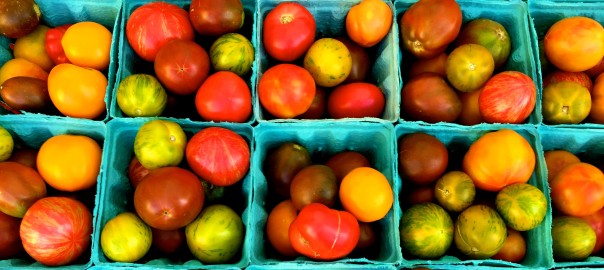The tomatoes are plentiful and perfectly ripe at the Union Square Greenmarket and the Olympics are set to start in Rio. It’s peak summertime and a terrific moment to think about great books, passionate readers, and finding new ways to connect them.
PEW DATA ON BOOK READERS
A recent Atlantic article on book readers looks at recent Pew data and finds both good news and bad: The bad news is that the number of American who opened a book last year (any book: paper, e-book, audio) declined . . . again. The good news is that the number of kids who read for pleasure has stopped declining and more American than ever are going to college. Book buyers correlation to education is very strong. It’s interesting to note that while education strongly correlates to numbers of books read, HHI above $50k a year is in the same ballpark for books read as HHI above $75k/year.
#readers #data #demos #HHI #education
“NOBODY OWNS THE FUTURE”
In this New York Times article on Verizon’s purchase of Yahoo, Tim Armstrong, head of Verizon’s AOL unit, points out that the long-term advertising landscape does not have to be entirely owned by Google and Facebook. The article is a good overview of why Verizon’s been on a buying spree recently, and how their purchases line up with their efforts to become a viable third option for advertisers. It’s also good on the potential conflicts of interest and privacy concerns that could have the FCC putting breaks on any effort to combine mobile, Web, and broadband user tracking. Watch this space.
OLYMPIC HASHTAG WRESTLING
The United States Olympic Committee has put non-sponsors on notice that only approved USOC sponsors can use the “official” hashtags #Rio2016 and #TeamUSA. This is patently ridiculous and shows how the old “lock-it-down” marketing mentality is persisting even in new open social channels. If you want to participate in crowd-sourcing your message and communicating on open social channels brands (including the USOC) have to relax their commitment to “owning” 100% of the conversation. There’s no other way to have a conversation unless you want to take the world back to the U.S.S.R. If you want to own the message, that’s perfectly understandable, but then you have to restrict your participation to the kind of marketing channels that let you have a one-way conversation with your audience. The Olympics are theoretically an event that’s about global openness and free competition. To try to reshape your message of the event with old-fashioned legal bullying is anti-Olympic, anti-American, and bad marketing.
#soapbox #olympics #social #Rio2016 #TeamUSA
HOW TO WIN BACK AD BLOCKERS
The IAB has released a study that shows how advertisers can win back the 26% of users who have turned on ad blocking. Not only are these users open to turning off ad blockers, the path to encouraging them to do so is simple to follow:
“Respondents who use ad blockers stated that the adoption of the LEAN principles (Light, Encrypted, AdChoice supported, and Non-invasive ads), which address a number of the tactics outlined above, would have the greatest influence in getting them to turn off ad blockers. For instance, results showed that men ages 18-34, who are the main ad blocking demographic on desktops, are also the group most inclined to turn off blocking if sites adhere to LEAN.”
Here’s Digiday’s detailed and helpful report on the study. The message is clear for advertisers: deliver ads that are contextually relevant, respectful of users, and fully transparent. These are principles Verso has believed in from the founding of our agency, and they remain best practices for advertising now.
THE PLATFORM WARS
Instagram is feeling the heat from Snapchat. To combat the rising new social platform, Instagram has just introduced “Disappearing Stories” Now you can post an image to Instagram that will disappear after twenty-four hours, a direct crib from their competitor Snapchat. eMarketer has an article about the new program:
“’The temporary nature of Stories—on Snapchat and now Instagram—is just part of their appeal,’ said eMarketer senior analyst Cathy Boyle. ‘The way the short video clips and images are strung together chronologically over the course of a day allows users to step into the lives of their friends, a few seconds at a time. The visual and near-real-time nature of Stories makes it a compelling way for friends to connect, not to mention another way for advertisers to engage mobile users.’”
Tomatoes at the Union Square Greenmarket photo 2016 (c) Martha Otis

